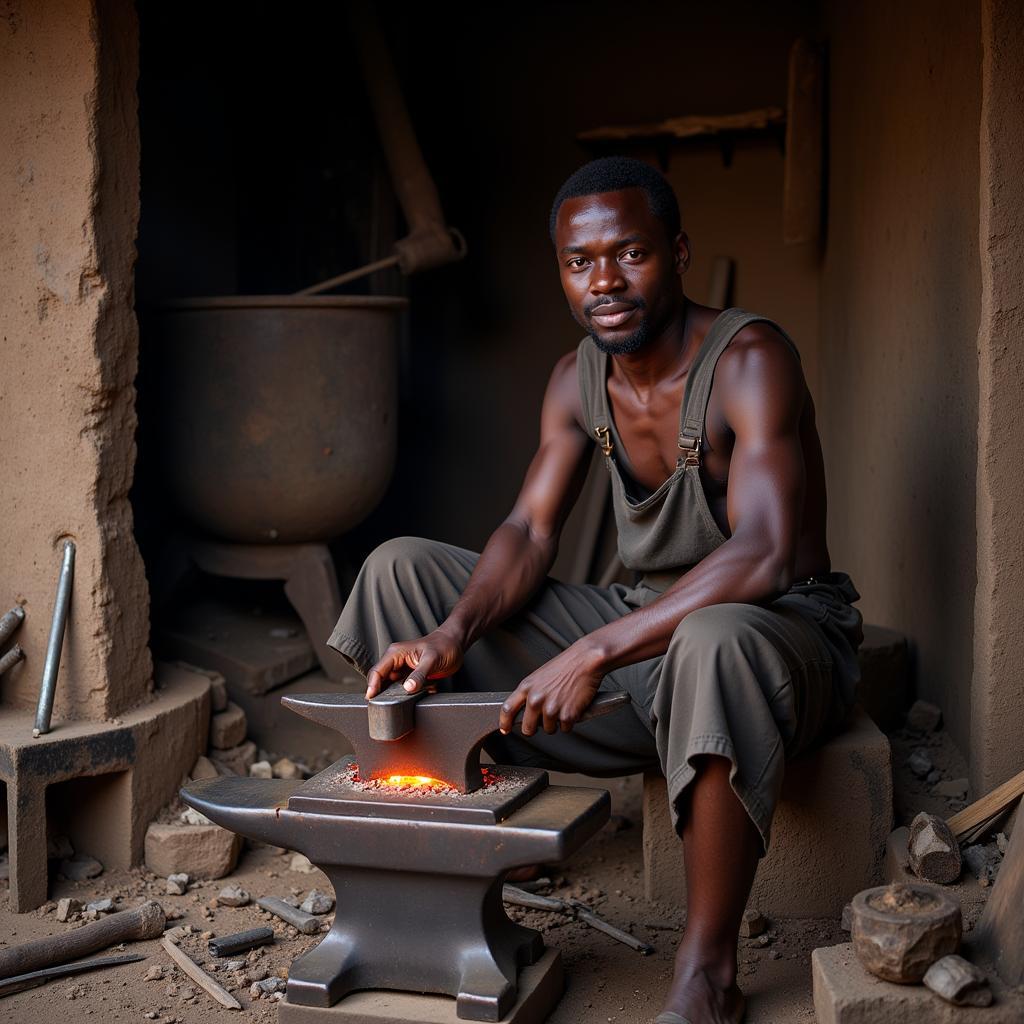Exploring the Beauty and Diversity of African Hair
African Hair is a testament to the rich diversity of the continent. From the tight coils of 4c hair to the looser curls of 3b, each strand tells a story of heritage, culture, and tradition. This exploration delves into the unique characteristics, care methods, and cultural significance of African hair. We’ll uncover its versatility and beauty, debunking myths and celebrating the diverse tapestry of styles that adorn the heads of millions across Africa and beyond.
Understanding the Different Types of African Hair
African hair is typically categorized using a numbering and lettering system, ranging from type 1 (straight) to type 4 (coily). Within these categories are sub-classifications (A, B, C) that further define the curl pattern, texture, and density. Understanding your hair type is crucial for choosing the right products and styling techniques. For instance, 4c hair, characterized by tight, densely packed coils, requires intense hydration, while 3b hair, with its looser, springy curls, benefits from products that define and control frizz. This system isn’t perfect, as many individuals have a combination of hair types, but it provides a helpful starting point for learning about African hair. You can find many examples of different African hair extensions styles to help determine your hair type.
Looking for inspiration? Check out an african hair gallery.
Caring for African Hair: Tips and Techniques
African hair, especially tighter curl patterns, is prone to dryness and breakage due to its unique structure. The natural oils produced by the scalp struggle to travel down the coiled strands, leading to moisture loss. Therefore, moisturizing is paramount. Deep conditioning treatments, leave-in conditioners, and natural oils like shea butter and coconut oil are essential for maintaining healthy, hydrated hair. Protective styling, like braids and twists, also helps minimize manipulation and reduce breakage. Avoid harsh chemicals and excessive heat styling to maintain the integrity of your hair.
The Cultural Significance of African Hair
Throughout history, African hair has held profound cultural significance, symbolizing identity, status, and spirituality. Intricate braiding patterns, passed down through generations, tell stories of tribal affiliations, social standing, and even marital status. These styles are not merely decorative; they are a form of art and communication. From the elaborate cornrows of the Himba people of Namibia to the ornate braids of the Yoruba in Nigeria, each style carries its own unique meaning and significance. Many people seek out braiding professionals in their area, such as those offering african hair braiding in suwanee ga.
Debunking Myths about African Hair
Many harmful myths and misconceptions surround African hair. Some believe it is difficult to manage, unprofessional, or even dirty. These stereotypes are rooted in ignorance and prejudice and must be challenged. African hair, like all hair types, is beautiful and versatile. It can be styled in a myriad of ways, from afros and braids to twists and locs. The key is understanding its unique needs and embracing its natural texture. Finding useful resources online, like african hair braiding videos, can help broaden understanding and showcase the versatility of this hair type.
Embracing Natural Hair: A Growing Movement
In recent years, there has been a powerful movement encouraging people of African descent to embrace their natural hair texture. This movement challenges Eurocentric beauty standards and celebrates the unique beauty of African hair. It promotes self-love, acceptance, and pride in one’s natural heritage. This shift in perspective has led to a surge in natural hair products, stylists specializing in African hair, and online communities dedicated to sharing tips and advice. You can even find salons that specialize in african hair extensions sydney.
Conclusion: Celebrating the Beauty of African Hair
African hair is a symbol of resilience, heritage, and beauty. It’s a testament to the rich tapestry of cultures across the African continent. From its unique textures and versatile styling options to its deep cultural significance, African hair is a story waiting to be told. By understanding its needs and embracing its natural beauty, we can continue to celebrate the diversity and magnificence of African hair. So, let’s continue to learn, appreciate, and celebrate the beauty of African hair in all its forms.
FAQ
- What are the best products for 4c hair?
- How often should I wash my African hair?
- What are protective styles, and why are they important?
- How can I prevent breakage in my African hair?
- What are some traditional African hairstyles?
- Are there any specific vitamins or supplements that promote healthy African hair growth?
- How can I find a stylist who specializes in African hair?
Situations where questions about African hair are common
- Hair salons specializing in African hair
- Online forums and communities dedicated to natural hair
- Family gatherings where traditional hairstyles are discussed
- Doctor’s offices for concerns about hair loss or scalp conditions
Related Questions & Further Exploration
- The history and evolution of African hairstyles
- The impact of colonization on African hair practices
- The science behind African hair growth and texture
- The economic impact of the natural hair movement
When you need support, please contact us by phone: +255768904061, email: [email protected], or visit our address: Mbarali DC Mawindi, Kangaga, Tanzania. We have a 24/7 customer service team.
